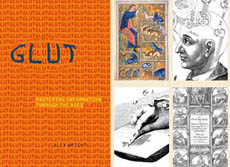The Post-Corporate World
December 3, 2005
 While I was up in Massachusetts a few weeks ago, I borrowed someone's copy of David Korten's The Post-Corporate World, a fascinating if bleak look at the future of capitalism. Korten, a former Harvard Business School professor, makes a convincing case that ever since capitalism triumphed over communism in the 1980s, it has been engaged in a new and less well-understood struggle: triumphing over democracy.
While I was up in Massachusetts a few weeks ago, I borrowed someone's copy of David Korten's The Post-Corporate World, a fascinating if bleak look at the future of capitalism. Korten, a former Harvard Business School professor, makes a convincing case that ever since capitalism triumphed over communism in the 1980s, it has been engaged in a new and less well-understood struggle: triumphing over democracy.
For those of us who grew up believing that capitalism is the foundation of democracy and market freedom, it has been a rude awakening to realize that under capitalism, democracy is for sale to the highest bidder and the market is centrally planned by global mega-corporations larger than most states.
The root of the problem, in Korten's view, stems from the doctrine of corporate personhood, the notion that a corporation, in the eyes of the law, has the same rights as a human being. This legal fiction creates a kind of social pathology. After all, corporations are not people; yet they are also the most powerful "people" on earth. Inevitably, the consolidation of corporate power skews the distribution of wealth, concentrating power and money in the hands of a privileged few at the top of the corporate hierarchy: a state of affairs not far removed from the conditions that preceded the fall of the monarchies in Europe.
Korten argues that the rising influence of corporations is driving deep social divisions in the U.S. and other capitalist countries, with the population aligning into three broad, increasingly hostile segments:
- Modernists
People who prize financial security, material comfort, and generally embrace corporate values. This would include most of the people I know. - Heartlanders
"Values" types who typically inhabit a lower end of the economic spectrum but nonetheless identify with Horatio Alger-esque American values. In other words, red staters. - Cultural Creatives
People who aspire to opt out of the corporate system, devote themselves to creative expression and political reform. Not entirely limited to the populations of Berkeley and Cambridge.
Much as I would like to affiliate myself with the cultural creatives, the truth is that I am more of what Korten would call a "titular modernist" - someone who lives a capitalist lifestyle, but with reservations.
Korten believes that the only meaningful antidote to the divisive social effect of corporate influence is for individuals to embrace a "post-corporate" lifestyle. Most of his program comes down to a prescription for voluntary simplicity: buy from local merchants, not corporations; and pare back on material comforts to live in a more sustainable way. Speaking for myself, I can't honestly promise to go 100% post-corporate anytime soon, but this book does make a useful starting point for examining some of my own unexamined economic tendencies.
File under: Books
_____________________« Say it ain't so, Dr Hal | Now that's a toast »
GLUT:
Mastering Information Through the Ages
New Paperback Edition
“A penetrating and highly entertaining meditation on the information age and its historical roots.”
—Los Angeles Times
